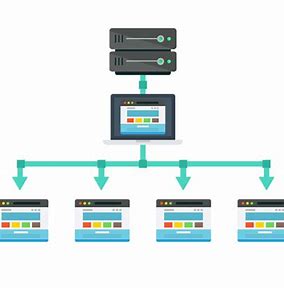Reseller hosting is a form of web hosting where an account owner (the reseller) rents or purchases server resources from a hosting provider and then sells or rents those resources to third parties. In simpler terms, a reseller is a middleman between the hosting provider and the end customers who need hosting services.

Providing a web hosting service to clients is usually the focus of a web hosting company. But, with reseller hosting, you become the host and you determine how you will charge and support your clients.
Reseller hosting is a great way for freelancers and businesses to offer web hosting services.
Table of Contents
Here’s how reseller hosting works:
Purchase Reseller Hosting Plan:
The reseller starts by purchasing a reseller hosting plan from a hosting provider. This plan typically includes a certain amount of server resources, such as disk space, bandwidth, and the ability to host multiple websites.

Resource Allocation:
Once the reseller has a reseller hosting account, they can allocate the server resources as they see fit. This means they can create individual hosting accounts for their clients or allocate resources to specific websites.

Create Hosting Packages:
Resellers often have the flexibility to create their own hosting packages with specific resource allocations and features. For example, they can create different plans with varying amounts of disk space, bandwidth, and the number of domains allowed.

Manage Customer Accounts:
The reseller is responsible for managing their customers’ hosting accounts. This includes setting up new accounts, configuring hosting settings, and providing customer support.
Branding:
Many reseller hosting plans allow for white-label branding, which means the reseller can brand the hosting services with their own company name and logo. From the customer’s perspective, it appears as if they are dealing directly with the reseller and not the original hosting provider.
Billing and Support:
Resellers handle billing and customer support for their clients. They set their own pricing for the hosting plans they offer and manage customer inquiries, issues, and requests.
Technical Support from the Hosting Provider:

While resellers handle customer support for non-technical issues, they often rely on the hosting provider for technical support related to server maintenance, hardware issues, and software updates. The hosting provider takes care of the infrastructure and server management.
Scale and Grow:
As the resellers business grows, they can scale by purchasing additional server resources from the hosting provider. This allows them to accommodate more clients and offer a broader range of hosting services.
Advantages of Reseller hosting
Reseller hosting can offer several advantages for individuals or businesses looking to enter the web hosting industry or manage multiple websites. Here are some key advantages of reseller hosting:
Cost Savings: Reseller hosting allows you to purchase a large amount of server resources and then sell them in smaller chunks to individual clients. This bulk purchase often results in a lower per-unit cost, providing cost savings compared to buying individual hosting plans.
Revenue Generation: As a reseller, you have the opportunity to generate revenue by selling hosting services to clients. This can be a profitable business model, especially if you can attract a steady stream of customers and manage the hosting resources efficiently.
Easy Management: Reseller hosting typically comes with a user-friendly control panel that makes it easy to manage multiple hosting accounts. This simplifies tasks such as creating, modifying, and deleting hosting accounts, managing resources, and monitoring usage.
Custom Branding: Reseller hosting often allows you to brand the hosting services with your own company name and logo. This provides a professional appearance and allows you to establish your own hosting brand without the need for significant infrastructure investment.
Technical Support: Many reseller hosting providers offer technical support for the server and infrastructure. This can be beneficial, especially if you don’t have the expertise or resources to handle technical issues. It allows you to focus on sales and customer service while leaving the technical aspects to the hosting provider.
Flexibility: Reseller hosting plans often provide flexibility in terms of resource allocation. This means you can adjust the resources allocated to each client based on their needs, allowing for scalability and customization.
Diversification of Services: With reseller hosting, you can diversify your service offerings by bundling hosting with other services like website design, development, or maintenance. This can make your business more attractive to a broader range of clients.
No Infrastructure Maintenance: As a reseller, you don’t have to worry about the maintenance and upkeep of the physical infrastructure, such as servers and data centers. The hosting provider takes care of these aspects, allowing you to focus on building and managing your hosting business.
Quick Startup: Reseller hosting offers a relatively quick and easy way to enter the web hosting business. You can start selling hosting services without the need to build and maintain your own infrastructure, which can be time-consuming and costly.
While reseller hosting has its advantages, it’s essential to choose a reputable hosting provider to ensure reliable services and support for your clients. Additionally, understanding the terms and conditions of the reseller hosting agreement is crucial for a successful and sustainable hosting business.

